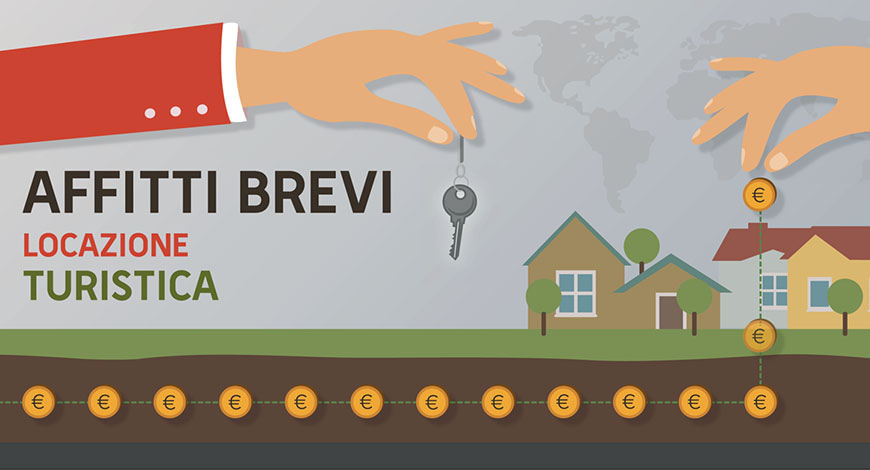Investing in rental properties can be highly profitable. However, property owners often face a decision: choose short-term rentals or long-term lease contracts? Each option offers its own benefits and potential return on investment (ROI). In this article, we’ll compare the ROI of short-term rentals versus long-term leases, using real data from Italy. This comparison will help owners make the best decision for their properties.
-
Understanding the Basics
Short-Term Rentals
Short-term rentals involve renting out a property for a few days or weeks. This is common on platforms like Airbnb and Booking.com. Tourists and business travelers often prefer short-term rentals because they offer more flexibility and a personalized experience.
Long-Term Lease Contracts
Long-term leases involve renting out a property for extended periods, usually six months to a year or more. This option is preferred by those seeking stable, long-term accommodations.
-
Comparing ROI
Income Potential
Short-Term Rentals
Short-term rentals generally have higher nightly rates than long-term leases. For example, in Italian cities like Rome, Florence, and Venice, the average nightly rate for a short-term rental can range from €150 to €300. Assuming an average occupancy rate of 80% (mid-May), a short-term rental could generate:
● €150 per night x 24 nights per month = €3,600 per month
● €300 per night x 24 nights per month = €7,200 per month
Long-Term Lease Contracts
Long-term leases offer more stable income but at lower monthly rates. In the same cities, a one-bedroom apartment might rent for €700 to €1,200 per month.
-
Average rental income from long-term lease: €700 to €1,200 per month
Occupancy Rates
Short-term rentals often have fluctuating occupancy rates depending on the season and market demand. During peak seasons, such as summer and holidays, occupancy rates can be high, while off-season periods may see lower occupancy.
Long-term lease contracts usually have stable occupancy since tenants stay for longer periods, providing consistent income without the fluctuations seen with short-term rentals.
Operating Costs
Short-Term Rentals
Managing a short-term rental involves higher costs, including:
● Cleaning fees at guest turnover
● Utilities (often included in the rental price)
● Maintenance and repairs due to increased use of the property
Managing a short-term rental with Hello Srl incurs lower costs:
● Only a management fee of 10-18% (which covers the above-mentioned costs and is paid by the management company or guests)
Long-Term Lease Contracts
Long-term leases generally have lower operating costs:
● Less frequent cleaning and turnover costs
● Utilities paid by the tenant
● Lower maintenance and repair costs
● Fewer management fees due to less intensive management
-
Tax Implications
Short-term rentals in Italy are taxed differently from long-term lease contracts. The tax rate for short-term rental income can be higher, and owners must also consider the impact of VAT (Value Added Tax) and local tourist taxes. Rental income from long-term leases is generally taxed at a lower rate, making it simpler from a tax perspective.
-
Case Study: Rome
Let’s compare a one-bedroom apartment in Rome:
Short-Term Rental
-
Average nightly rate: €150
-
Occupancy rate: 80% (mid-May)
-
Monthly income: €150 x 24 nights = €3,600
● Operating costs vary depending on who manages the short-term rental:
Managed by you |
Managed by Hello Srl |
Operating costs: €600 (cleaning, utilities, maintenance) |
Operating costs: 15% (if it’s a B&B) = €450 |
Net monthly income: €3,600 – €600 = €3,000 |
Net monthly income: €3,600 – €450 = €3,150Contratto di Locazione Lunga |
Long-Term Lease
● Monthly rent: €1,000
● Operating costs: €200 (maintenance)
● Net monthly income: €1,000 – €200 = €800
In this example, the short-term rental generates a higher net income (€3,000 or €3,150 with Hello Srl) compared to the long-term lease (€800). However, the higher income from short-term rentals comes with more management work and fluctuating occupancy rates.
Conclusion
When deciding between short-term rentals and long-term leases, owners must consider potential income, costs, and risks. Short-term rentals can offer higher returns, especially in tourist areas, but require more active management and come with higher costs. Long-term leases provide stable, predictable income with less management and lower costs.
At Hello Srl, we specialize in managing short-term rentals to maximize your returns while minimizing your workload. With us, you not only save time but also reduce the management costs associated with short-term rentals, as they are included in our comprehensive service package. Our expertise in the Italian market ensures that your property is effectively marketed and managed, allowing you to enjoy the benefits of higher rental income without the hassle.
By partnering with Hello Srl, you can make the most informed decision for your property and achieve the best possible ROI. Contact us today to learn more about how we can help you succeed in the competitive short-term rental market.
Yasmina A. , Barsbold L.
Want to simplify the management of your short-term rental?
Discover how we can help you maximize your earnings and simplify the management of your property.
BOOK YOUR FREE CONSULTATION NOW!

